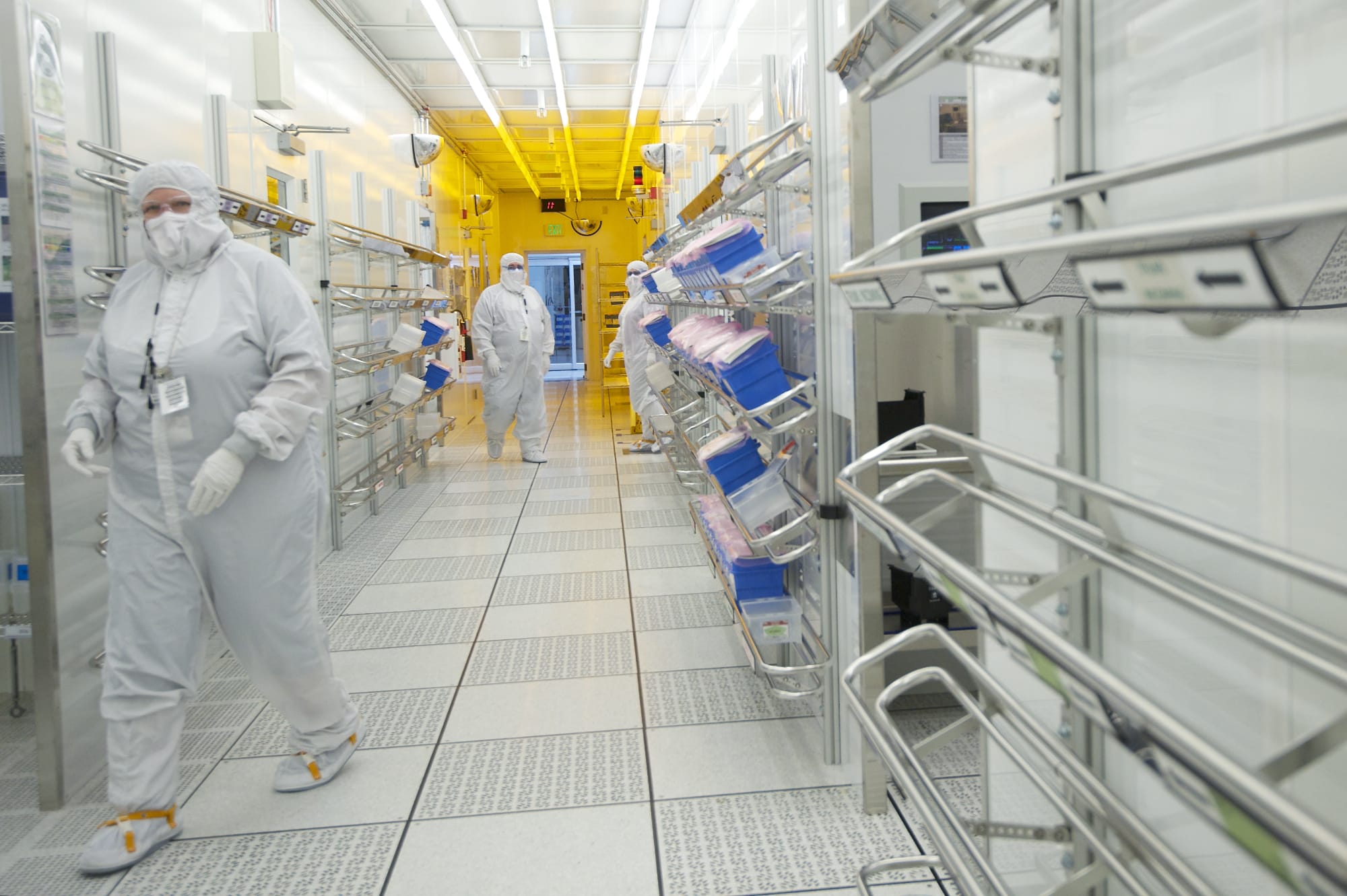When Linear Technology decided last year to change the way the silicon chipmaker did business and move to a more streamlined manufacturing system, employees at the company’s Camas manufacturing plant were more than skeptical.
“They hated it,” said Jill Jenkins, production group lead at Linear. That’s no surprise: change is hard, especially when employees are worried about their jobs.
Linear is one of 14 Southwest Washington companies that has taken advantage of a U.S. Department of Labor H-1B Technical Skills training grant, called Metro-Insourcing Training Initiative. The Portland-Southwest Washington regional grant is being administered locally by Southwest Washington Workforce Development Council.
The $1.4 million grant program for Southwest Washington aims to keep U.S. workers from losing their jobs by training them in the skills they need to adapt and remain competitive with overseas workers. It also aims to train workers for jobs that are opening up as older workers retire.
The workforce development council is about one year into the grant and has served 300 workers at 14 companies in Clark, Cowlitz and Wahkiakum counties. The goal is to train 1,100 by September 2015, said Lee Ann Lawrence, employer services manager at SWWDC.
The program also works with partners such as Clark College and Impact Washington to ensure training and workforce programs match the needs of the companies. It comes at a time when local economists expect there will be a shortage of trained workers for thousands of jobs that will become vacant as skilled workers retire.
The Portland area, including Southwest Washington and Oregon’s tri-county region, is expected to see 13,000 jobs become available because of growth and another 20,000 because of worker replacement by 2020, notes Scott Bailey, Southwest Washington regional economist for the Employment Security Department. Those include an estimated 2,200 new manufacturing jobs and 3,500 replacement jobs in Southwest Washington, Bailey said in an email.
Cultural changes
Linear began training its employees in what is called the lean manufacturing system about three years ago, before the grant money became available. The lean system aims to eliminate inefficiencies and engage workers in improving the manufacturing system.
Employees are catching on, Jenkins said.
“We’ve come a long ways,” she said. “No way would I go back and work like we did before. It looks better on your résumé or your file or your review. You’re a more valued employee.”
Linear Technology, based in California’s Silicon Valley, designs and manufactures a broad range of high-performance analog integrated circuits. The company’s products provide a bridge between the analog world and the digital electronics in communications, networking, industrial, automotive, computer, medical, instrumentation, consumer, and military and aerospace systems, according to Linear’s website.
Manufacturing of the computer chips is done in highly sanitary conditions that Jeff Parker, Camas plant manager at Linear, says are cleaner than a hospital. Because of the sensitive nature of the technology, each worker dons what is nicknamed a “bunny suit” of scrubs and masks. Some workers dealing with acid wear aprons.
Even with the improved efficiencies, Parker said it took some time for employees to trust the new system.
“There were a lot of cultural changes,” he said. “They had to start to realize that was OK.”
With the program’s successful implementation in Camas, Linear Technology has applied the principles to its corporate and overseas sites, Parker noted. In Camas, the company is aiming to increase its workforce from 285 to 310 employees in the next year.
Lawrence, of the workforce council, admits some companies are more hesitant to apply for training funds through the grant program.
“If you’re taking federal funds that means that your books are open,” she said. “Simply, some companies don’t want that and don’t like that.” She said some other companies are having trouble keeping up with growth and can’t fit training into their hectic schedules.
“The biggest challenges of the companies that have not been able to move forward is that their production schedules are making it very difficult to implement a training program,” she said. “They can barely keep pace with the number of orders.”
While the workforce council and its partners assist companies in finding the training that would work for their employees, the companies decide who their trainers will be. Lawrence also reviews training programs and ensures that no layoffs are part of the plan.
For Linear, the continued training is paying off.
“It’s been a big benefit to Linear. What we’ve learned here in this factory is now being ‘exported’ from this company to our other manufacturing sites,” Parker said.



